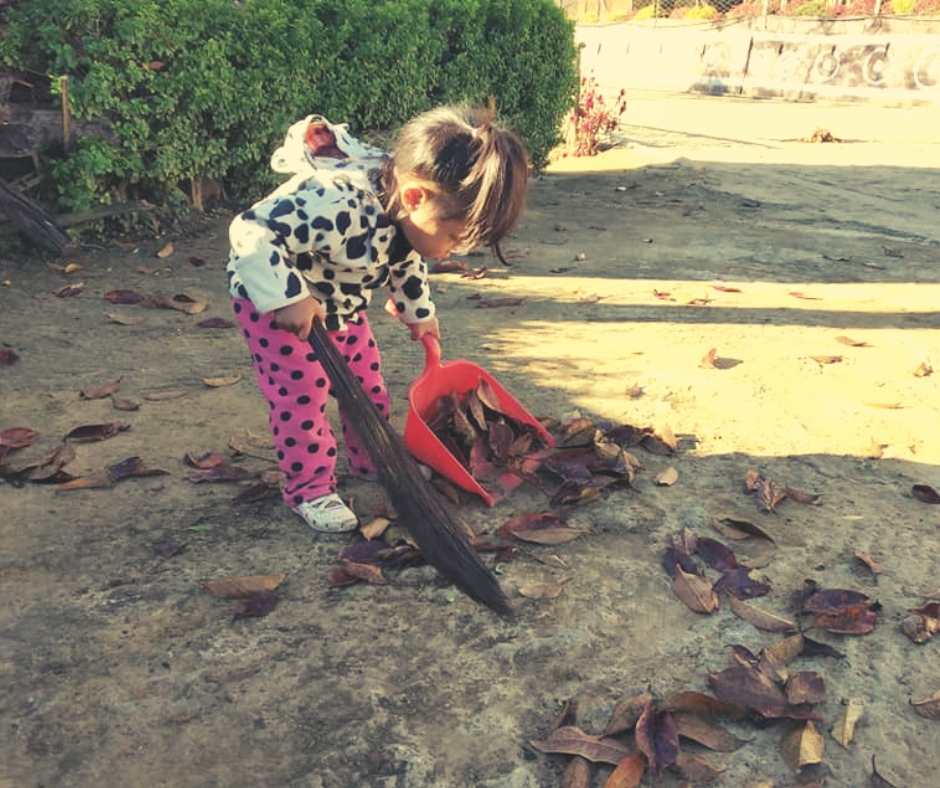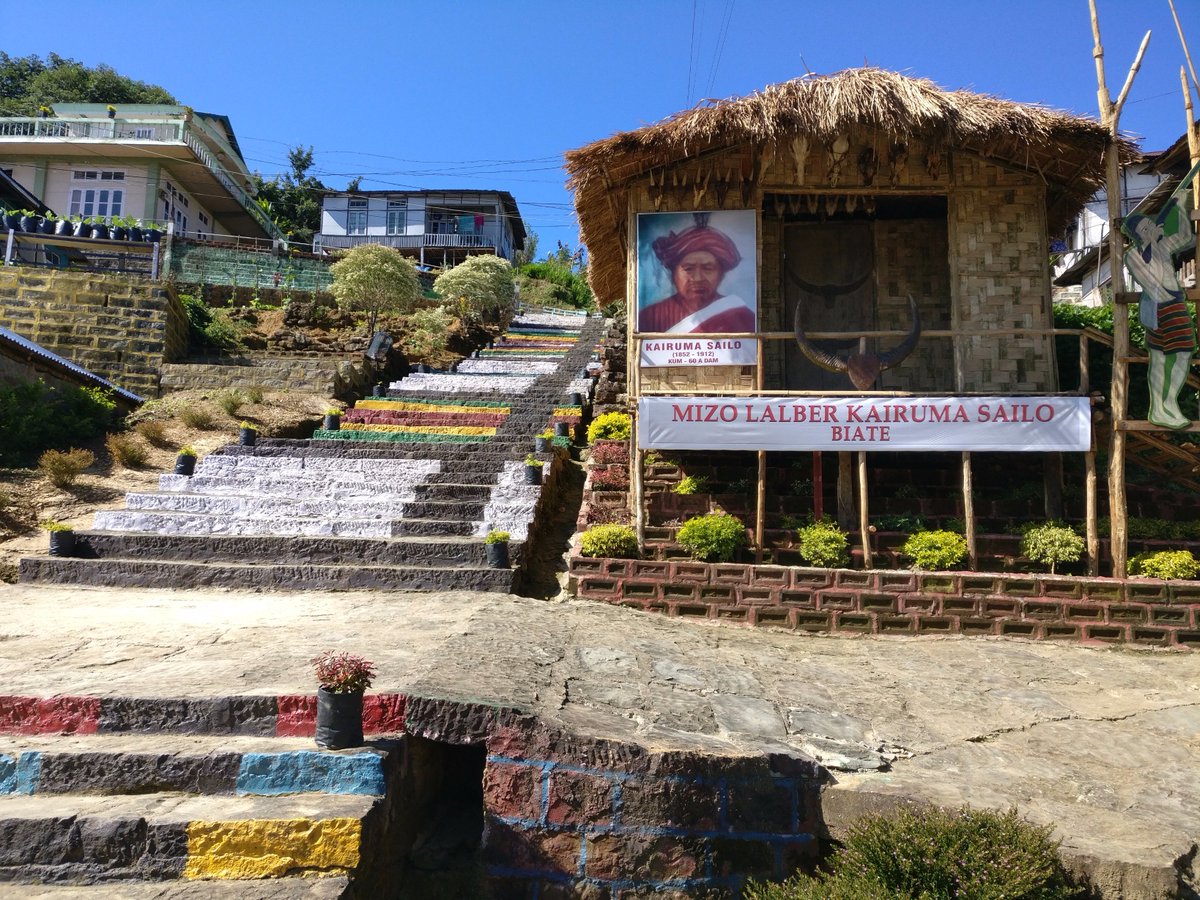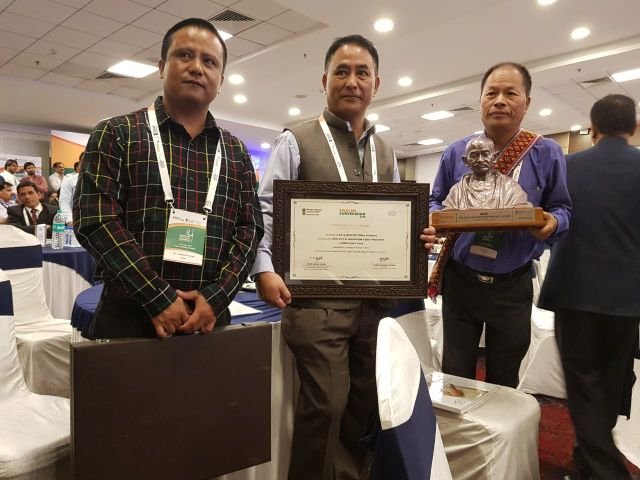Why This Mizoram Town is a Model of Civic Responsibility For The Rest of India
“What makes Biate remarkable is that there are no strictly enforced rules here. There are no legal penalties for smoking in public places, for urinating in the open and for littering. They just don’t do it.”

Every Saturday morning, young children, armed with brooms in their hand, walk down the streets of Biate, a town in Mizoram, to sweep their respective localities and in the process, the whole town.
Although their efforts do not necessarily create a significant difference, one thing stands out—the spirit of community participation. Moreover, the town doesn’t even require significant cleaning since it’s tough to find garbage on the streets.
The cleanliness ethos is something elders in the community had preached and practised long before the Swachh Bharat Abhiyan entered the mainstream Indian consciousness.
This spirit even precedes Mahatma Gandhi, who preached it as an essential civic obligation.
“In the late 1800s, a chieftain wanted to examine ways in which Biate could achieve total cleanliness and appointed a person to oversee the entire process. Residents were directed to ensure they, their houses and utensils were clean at all times. Those who didn’t were fined,” says R Lalremkunga, the President of the Young Mizo Association (Biate Chapter).
The Young Mizo Association (YMA) which is the largest voluntary organisation in the state was first established in 1935 by Welsh Christian missionaries.
Located nearly 175 km from the state capital of Aizawl in the lush and hilly climes of Serchhip district district, Biate is home to a population of less than 2,500.
In December 2016, the town was declared Open Defecation-Free, the first one to gain that recognition in Mizoram. On October 2, 2017, the state government declared Biate as the cleanest town in Mizoram. Some consider the town to be the cleanest one in the Northeast.
The town also won the “Best City” award under Innovation and Best Practices —Northeast Zone in the Swachh Survekshan 2018 survey.
What’s remarkable about this initiative is the ownership the local community has taken to manage its waste and ensure functional sanitation systems are put in place.
The ‘dirty work’ of ensuring the town remains clean isn’t relegated to members of poor and marginalised communities like in other mainland cities and towns, but a collective responsibility.
While chieftainship was abolished in 1954, the local Village Council (VC) and elders took it upon themselves to maintain this legacy of cleanliness.
Two years later, the Mizo Children’s Association, a children’s unit (comprising of those under the age of 14) of the YMA, took up the initiative of using their leisure time to clean the streets.
However, the subsequent decades of insurgency brought these cleanliness efforts to a grinding halt before the Mizo Children’s Association, also known locally as YMA Chhang, was revived in 2003 to “impart the importance of cleanliness in the younger generation through pledges, rallies and voluntary work programmes across the town,” says R Lalremkunga.
Besides the YMA, the collective effort also includes residents, the Village Council (VC), a local governing body, and a plethora of other students, teacher and senior citizens, among others.
Explaining the process of waste collection and recycling, Lalremkunga says, “There are four garbage trucks which come to collect all the day’s waste all over town. At the household level itself, residents segregate the waste into wet and dry. The dry waste is either taken to certain recycling centres for plastic and paper waste, while the rest is dumped into an open ground 2 km from the town. Meanwhile, the wet waste is taken to a vermin-compost plant, which is run by three men who in 2007 underwent waste management training programme offered by the Kerala government, under the Spices Board of India.”
Once Monday comes around, volunteers wearing the necessary safety gear collect the waste from public dustbins marked with signs of biodegradable and non-biodegradable waste, take it to the compost pit, segregate it further and throw the wet waste into the pit which is broken down by a particular species of earthworm. Most households, however, have their own compost pits.
The role of the VC is worth mentioning.
Understanding the need to collect garbage from every corner of the town, the VC widened the inner roads and even asked the residents to give up their land.
All these roads were constructed under the MGNREGA scheme and were later renovated into proper roads. These efforts allowed garbage trucks to enter different corners of the town.
The VC also paid attention to maintaining side drains to ensure hygiene of the whole town. Funds collected from the residents and VC allowed locals to construct and maintain their side drains. Thanks to these well-maintained drains and area’s hilly topography, rainwater does not stagnate.
No one was left out of the cleanliness process, and while community participation is an important facet of life in Mizoram, Biate has taken it to the next level.
“Every month each household in Biate pays Rs 50 to the VC. The money collected goes towards hiring garbage trucks, paying volunteers who manage the waste and purchasing necessary safety equipment,” says Lalremkunga.
“Door-to-door campaigns, counselling and sensitising the younger generation as well as the older ones, convincing them that Biate could only be clean if every resident accepted to act responsibly, proved to be most fruitful over the years. What makes the Biate cleanliness drive remarkable is that there are no strictly enforced rules here. There are no legal penalties for smoking in public places, for urinating in the open and for littering. They just don’t do it,” writes Dr C Vanlalramsanga, a senior bureaucrat in the Mizoram government.
The results of all these efforts are there for everyone to see.
In the town, you can barely find a single piece of litter strewn on the ground, but if a resident does find one, he/she throws it into the nearest dustbin. There have no reported cases of stunted or waste children in nearly 15 years, and in the past five years, the town has not seen a single case of dysentery and typhoid, while the threat of malaria remains non-existent.

Having said that, there are concerns about the open dumping ground 2 km outside town, where garbage trucks come to dump the dry waste that local recycling units cannot handle. There is a wall constructed below that dump so that the garbage does not slide into the streams. Local authorities have sought the government’s assistance to deal with this open dumping ground.
Also Read: Mizo Peace Accord: The Intriguing Story Behind India’s Most Enduring Peace Initiative!
Nonetheless, decades of local efforts have borne fruit, leaving an indelible mark on the consciousness of residents even today.
That is what civic responsibility is all about, and Biate is a model town the rest of India must emulate.
(Edited by Gayatri Mishra)
Like this story? Or have something to share? Write to us: [email protected], or connect with us on Facebook and Twitter.
This story made me
- 97
- 121
- 89
- 167
Tell Us More
We bring stories straight from the heart of India, to inspire millions and create a wave of impact. Our positive movement is growing bigger everyday, and we would love for you to join it.
Please contribute whatever you can, every little penny helps our team in bringing you more stories that support dreams and spread hope.



















